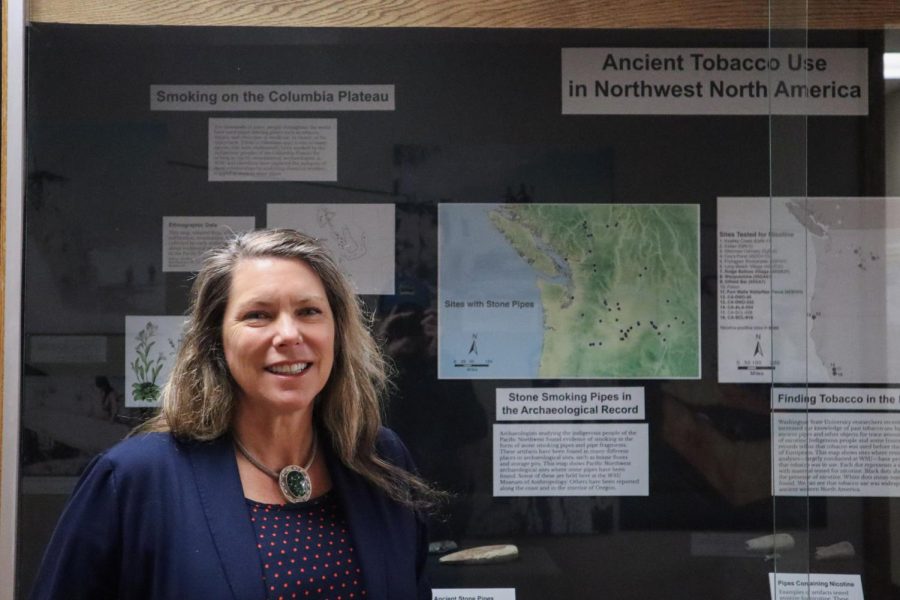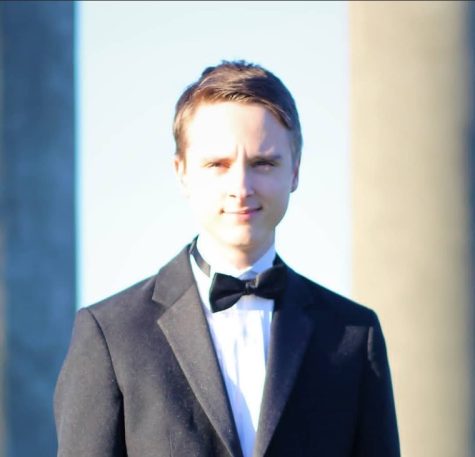Professor of anthropology studies history of psychoactives
Ritualistic practices, common with ancient psychoactive drug use
November 17, 2022
Whether it is tobacco, cannabis or even chocolate, anthropology professor Shannon Tushingham has seen it all when it comes to psychoactive drugs.
Tushingham has worked at WSU since 2013, her love of anthropology comes from an interest in variation and how people live in different parts of the world.
“I’m really interested in discovering things about ancient communities and connecting them to people today,” Tushingham said. “I’ve just had a fascination about finding things out about human beings.”
Tushingham said she got her bachelor’s degree at University of Connecticut, where she studied anthropology. She then received her master’s at University of Memphis and after working in archaeology in the private sector, she received her doctorate at the University of California, Davis.
A large part of Tushingham’s research is the study of psychoactive substances in past societies, she said. One finding she has observed is that many of these substances had a different context in ancient societies than they do today.
Psychoactive drugs used to serve more of a ritualistic or ceremonial purpose in ancient societies than they do today, she said.
“If you think about tobacco, for example, it was used as an offering, it was used every once in a while,” she said. “It was something that was important in many, many cultures. After it was commercialized and packaged as cigarettes in grocery stores, that really changed the context of tobacco.”
Beyond just their context in ancient societies, Tushingham said she has observed other uses of psychoactive substances.
“One of the interesting things that we are finding is gendered use of some of these substances,” she said. “For example, with tobacco research we’re doing, I think some people believe tobacco is mostly used by men, but our studies show it was also used by women as well.”
Tushingham said as part of her research with psychoactive substances she and some of the students involved with her lab study the plants they do not know the historical context of, which can recreate them today.
“What we have to do is say, ‘What plants do we think people might have used that might have some psychoactive qualities?’” Tushingham said. “We extract the residue and all of the chemicals that get embedded in the pipe. That residue does actually stay in these ancient artifacts, which is pretty amazing. “… We cook plants and medicinal teas into things like chocolate.”
As part of her research, Tushingham is a part of the Tushingham Lab, where her psychoactive plant research is included. A few other points of research for her are human autonomy and research on tribal communities in the Western United States.
Anthropology professor Mario Zimmermann said he has worked at WSU since 2014 and has been a part of the Tushingham Lab since 2015.
“We are working with chemical residues analysis, both extract residues from artifacts and human remains,” Zimmermann said. “With artifacts, we work mostly with pipes because our research with chemical residues is very much psychoactive substances which we commonly call drugs or medicinal plants.”
At the moment, there are only a handful of students who are directly involved with the lab, Zimmermann said. One of the most important factors at the lab is that they are able to recover evidence from around the globe about the long-standing relationships humans have with psychoactive substances.
“The interesting part for us is finding out how the ancient way of consuming those plants is the same as nowadays,” he said. “We know that cocoa was consumed in very different ways in the past than it is now.”
Zimmermann said overall it is hard to have a generalized consensus as to what drugs were used the same in the past as they are now, as that can vary from substance to substance.
“Right now we are trying to figure out how the uses and purposes for cannabis have changed since those substances came to exist,” he said. “We know for the longest time cannabis was not smoked, it was eaten. So far it looks like cannabis was first smoked in Africa.”
Another notable experience Tushingham had as a part of her research was when she was pulled over at the Canadian border and had some materials from her studies in the car.
“They pulled me over because I had all my groceries in the back. They asked, ‘What’s in the cooler back there?’ and I said it’s for my psychoactive plant research,” she said. “They said, ‘Ok, we’re doing the full search.’”
She showed the officers everything and her research was legitimate, meaning she was not breaking the law, but she said she was nervous that her materials may be confiscated.
Tushingham said she hopes to emphasize the accomplishments that her team has accomplished, such as being the first group to identify psychoactive plant residues in dental calculus, and that her research is only possible in a few places, WSU being one of them.
















